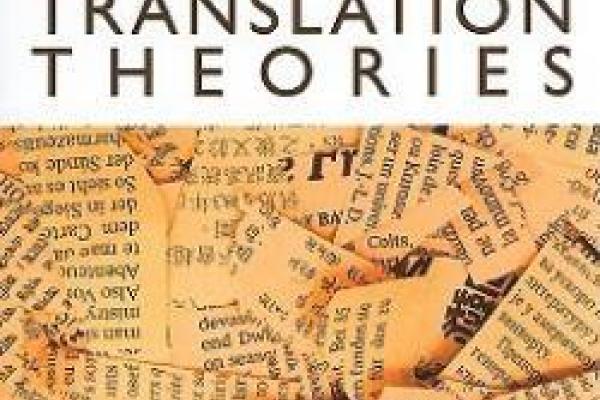
September 12, 2014
2:30PM - 4:00PM
Humanities Institute, 104 East 15th Av
Add to Calendar
2014-09-12 14:30:00
2014-09-12 16:00:00
Workshop with Anthony Pym, on The Medieval Postmodern in Translation Studies
Literacy in Translation SeriesAnthony Pym is Professor of Translation and Intercultural Studies, Universitat Rovira i Virgili, Spain and Visiting Researcher at the Monterey Institute of International Studies. Pym is President of the European Society for Translation Studies. He will lead a workshop, organized by the Literacy inTranslation working group, that considers the relationship of 12-century translation practices to translation in the age of electronic communication. A comparison between contemporary software localization projects and 12-century translation practices reveals some intriguing parallels with respect to the way the translation concept is configured and the way translators work together. In neither case is there a fixed start text; in both cases there is significant teamwork; in both cases we find a clear separation of literalism from adaptation. In between those two periods, in an age of print, we find the development of our more common presuppositions: a lone translator, a fixed start text, and equivalence. This analysis also gives a few clues as to what translation is becoming in our age of electronic communication, and what consequences this is having for intercultural relations. Seating is limited. Registration required. Email hanson.94@osu. Recommended reading: The Medieval Postmodern in Translation Studies
Humanities Institute, 104 East 15th Av
OSU ASC Drupal 8
ascwebservices@osu.edu
America/New_York
public
Date Range
Add to Calendar
2014-09-12 14:30:00
2014-09-12 16:00:00
Workshop with Anthony Pym, on The Medieval Postmodern in Translation Studies
Literacy in Translation SeriesAnthony Pym is Professor of Translation and Intercultural Studies, Universitat Rovira i Virgili, Spain and Visiting Researcher at the Monterey Institute of International Studies. Pym is President of the European Society for Translation Studies. He will lead a workshop, organized by the Literacy inTranslation working group, that considers the relationship of 12-century translation practices to translation in the age of electronic communication. A comparison between contemporary software localization projects and 12-century translation practices reveals some intriguing parallels with respect to the way the translation concept is configured and the way translators work together. In neither case is there a fixed start text; in both cases there is significant teamwork; in both cases we find a clear separation of literalism from adaptation. In between those two periods, in an age of print, we find the development of our more common presuppositions: a lone translator, a fixed start text, and equivalence. This analysis also gives a few clues as to what translation is becoming in our age of electronic communication, and what consequences this is having for intercultural relations. Seating is limited. Registration required. Email hanson.94@osu. Recommended reading: The Medieval Postmodern in Translation Studies
Humanities Institute, 104 East 15th Av
Department of Comparative Studies
compstudies@osu.edu
America/New_York
public
Literacy in Translation Series
Anthony Pym is Professor of Translation and Intercultural Studies, Universitat Rovira i Virgili, Spain and Visiting Researcher at the Monterey Institute of International Studies. Pym is President of the European Society for Translation Studies. He will lead a workshop, organized by the Literacy inTranslation working group, that considers the relationship of 12-century translation practices to translation in the age of electronic communication.
A comparison between contemporary software localization projects and 12-century translation practices reveals some intriguing parallels with respect to the way the translation concept is configured and the way translators work together. In neither case is there a fixed start text; in both cases there is significant teamwork; in both cases we find a clear separation of literalism from adaptation. In between those two periods, in an age of print, we find the development of our more common presuppositions: a lone translator, a fixed start text, and equivalence. This analysis also gives a few clues as to what translation is becoming in our age of electronic communication, and what consequences this is having for intercultural relations.
Seating is limited. Registration required. Email hanson.94@osu.
Recommended reading: The Medieval Postmodern in Translation Studies
